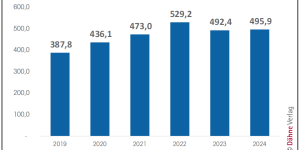
deep insights, facts & figures
26.11.2009
Research carried out by B&Q reveals that young people in Britain lack practical skills and DIY knowledge. The British DIY retailer now intends to counter this trend by initiating special classes in schools
Young people in the UK are losing their practical and DIY skills, according to a survey carried out by B&Q. The poll of 2 500 people indicated that, in almost all areas, grandparents knew more than those born since the mid-1970s. When it comes to rewiring a plug, bleeding a radiator or growing their own vegetables, most young people have very little knowledge compared to older generations. Furthermore, many of the younger generation are saying that they wish they were able to learn more DIY skills from older people, which would be useful around the home. To counter the trend of DIY skills dying out, B&Q is introducing new DIY classes for schools. Linked to the national curriculum, the classes have been developed by B&Q in cooperation with teachers, schoolchildren and parents. The resulting syllabus, which has Government support, is aimed at children aged between 11 and 14 years, and will include a variety of practical tasks. The lessons are being trialled in 100 schools initially, but should eventually be offered in 5 000 schools nationally. They will include fixing, building, horticulture and decorating, as well as basic health and safety training. B&Q, which has had a reputation for employing a proportion of older staff in its stores for many years, says that its current initiative is about countering the "throw-away society" and also increasing the skill levels of young people. B&Q recently won the Age Positive Retailer of the Year Award. According to chief executive Ian Cheshire: "Older workers have a great rapport with customers, as well as a conscientious attitude and real enthusiasm for the job." The company has found that since they started employing older workers, the benefits have included a sixfold reduction in staff turnover and a 39 per cent reduction in absenteeism
Related articles
Read also

 Menü
Menü















